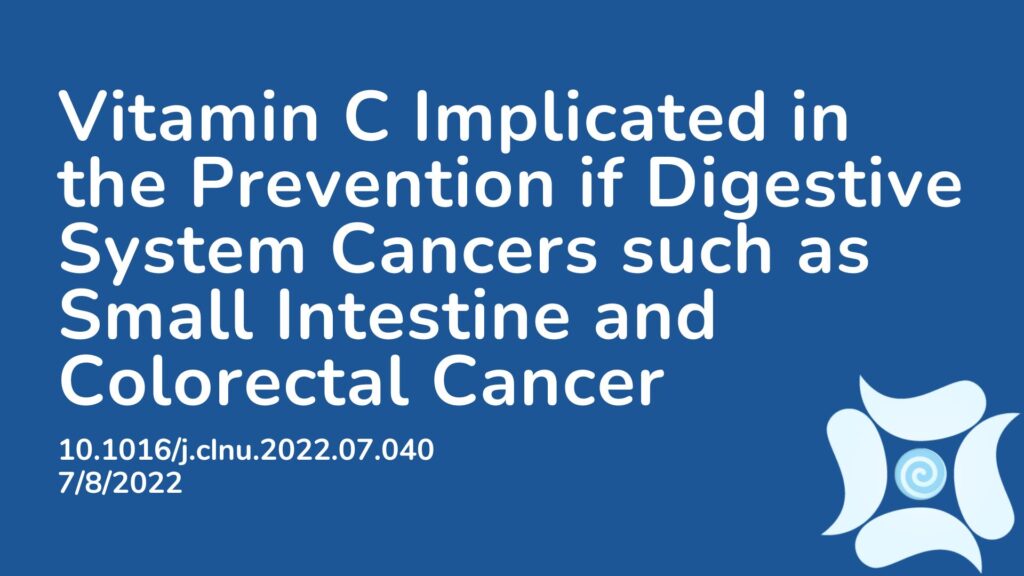Summary:
Vitamin C is a water-soluble nutrient found in most fruits and vegetables. It is a powerful antioxidant, strengthens the immune defense system, has a role in the formation of collagen and helps the function of neurotransmitters and cells. Vitamin C may also play a role in the prevention of digestive system cancers however there is limited conclusive data on this. The aim of this paper was to investigate whether there is a causal association between vitamin C levels and risk of digestive system cancers. The results showed that there is evidence suggestive of higher circulating vitamin C levels being associated with a reduced risk of small intestine cancer. The cause of small intestine cancer is still unknown, however this study does suggest that vitamin C may have a preventive role. Further studies of the way that vitamin C acts as an antioxidant in relation to risk of small intestine cancer is still needed. The results also showed a smaller association between vitamin C intake and lower risk of colorectal cancer.
Abstract:
Background & aims: Vitamin C is an antioxidant with a potential role in the prevention of digestive system cancers, but there is yet no consensus whether vitamin C has a causal role in these cancers. The aim of this study was to utilize Mendelian randomization to decipher the potential causal associations of vitamin C with risk of digestive system cancers. Methods: Ten genetic variants previously found to be significantly associated with circulating vitamin C were used as instrumental variables. Effect size estimates for the genetic associations of the vitamin C-associated genetic variants with six major malignancies of digestive system were obtained from the FinnGen (N = 309 154) and UK Biobank (N = 367 542) studies. Results from the two studies were combined using meta-analysis. Results: Genetically predicted higher circulating vitamin C showed a suggestive association with lower risk of small intestine and colorectal cancer after accounting for multiple testing. The odds ratio per 1 standard deviation increment in circulating vitamin C was 0.55 (95% confidence interval 0.32–0.94; P = 0.029) for small intestine cancer and 0.84 (95% confidence interval 0.73–0.96; P = 0.013) for colorectal cancer. There was a suggestive association between genetically predicted higher circulating vitamin C with lower risk of liver cancer in FinnGen but no association in the meta-analysis (odds ratio 0.69; 95% CI 0.36–1.32; P = 0.265). Genetically predicted circulating vitamin C was not associated with cancers of the esophagus, stomach, or pancreas. Conclusion: This Mendelian randomization study indicates that vitamin C might play a role in the prevention of small intestine and colorectal cancer.
Article Publication Date: 7/8/2022
DOI: 10.1016/j.clnu.2022.07.040




